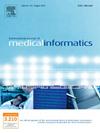A systematic review and proposed framework for sustainable learning healthcare systems
IF 3.7
2区 医学
Q2 COMPUTER SCIENCE, INFORMATION SYSTEMS
International Journal of Medical Informatics
Pub Date : 2024-10-12
DOI:10.1016/j.ijmedinf.2024.105652
引用次数: 0
Abstract
Background
The healthcare sector is a complex domain that faces challenges in effectively learning from practices and outcome data. The Learning Health System (LHS) has emerged as a potential framework to improve healthcare by promoting continuous learning. However, its adoption remains limited, often involving only a single clinical department or a part of the LHS cycle. There is a need to gain a better understanding of implementing LHS on a larger scale.
Aim
To identify complete implementations of the LHS for providing recommendations into their implementation strategies, success factors, barriers, and outcomes.
Methods
A systematic review was conducted in accordance with the PRISMA (Preferred Reporting Items for Systematic Reviews and Meta-Analyses) guidelines using PubMed and Scopus databases. Data from the included papers were thematically categorized into four primary areas: (1) Scale of LHS Implementation; (2) Implementation strategies and the factors that facilitated the implementation of LHS; (3) LHS outcomes; and (4) Barriers /challenges related to the LHS implementation.
Results
We identified 1,279 papers, of which 37 were included in the final analysis. Barriers to implementing LHS included interoperability, data integration, electronic health records (EHRs) challenges, organizational culture, leadership, and regulatory hurdles. Most LHS initiatives lacked discussion on long-term economic sustainability models, and only 16 papers provided objective measurements of performance changes. Drawing from the findings of the included studies, this paper offers recommendations for the effective implementation of the LHS.
Conclusion
The establishment of sustainable LHS necessitates several key components. First, there is a need to develop long-term economic sustainability models. Secondly, governance at the national level should promote common Application Programming Interfaces (APIs) across LHS implementations, communication channels to share tacit knowledge, efficient Institutional Review Board, ethical approval processes, and connect various initiatives currently operating independently. Lastly, the success of LHS relies not only on technological infrastructure but also on the active participation of multidisciplinary teams in decision-making and sharing of tacit knowledge.
可持续学习型医疗保健系统的系统回顾和拟议框架
背景医疗保健行业是一个复杂的领域,在从实践和结果数据中有效学习方面面临挑战。学习型医疗系统(LHS)已成为通过促进持续学习来改善医疗保健的潜在框架。然而,它的应用仍然有限,往往只涉及单个临床科室或 LHS 周期的一部分。方法根据PRISMA(系统综述和荟萃分析的首选报告项目)指南,使用PubMed和Scopus数据库进行系统综述。纳入论文的数据按主题分为四个主要方面:(1) 本地保健系统的实施规模;(2) 实施策略和促进本地保健系统实施的因素;(3) 本地保健系统的结果;以及 (4) 与本地保健系统实施相关的障碍/挑战。实施 LHS 的障碍包括互操作性、数据整合、电子病历 (EHR) 挑战、组织文化、领导力和监管障碍。大多数 LHS 计划缺乏对长期经济可持续性模式的讨论,只有 16 篇论文提供了对绩效变化的客观测量。根据所纳入研究的结果,本文提出了有效实施长效医疗系统的建议。首先,需要制定长期的经济可持续性模式。其次,国家层面的管理应促进长者健康服务实施的通用应用编程接口(API)、分享隐性知识的交流渠道、高效的机构审查委员会、伦理审批流程,并将目前独立运作的各种倡议联系起来。最后,LHS 的成功不仅有赖于技术基础设施,还有赖于多学科团队积极参与决策和共享隐性知识。
本文章由计算机程序翻译,如有差异,请以英文原文为准。
求助全文
约1分钟内获得全文
求助全文
来源期刊

International Journal of Medical Informatics
医学-计算机:信息系统
CiteScore
8.90
自引率
4.10%
发文量
217
审稿时长
42 days
期刊介绍:
International Journal of Medical Informatics provides an international medium for dissemination of original results and interpretative reviews concerning the field of medical informatics. The Journal emphasizes the evaluation of systems in healthcare settings.
The scope of journal covers:
Information systems, including national or international registration systems, hospital information systems, departmental and/or physician''s office systems, document handling systems, electronic medical record systems, standardization, systems integration etc.;
Computer-aided medical decision support systems using heuristic, algorithmic and/or statistical methods as exemplified in decision theory, protocol development, artificial intelligence, etc.
Educational computer based programs pertaining to medical informatics or medicine in general;
Organizational, economic, social, clinical impact, ethical and cost-benefit aspects of IT applications in health care.
 求助内容:
求助内容: 应助结果提醒方式:
应助结果提醒方式:


